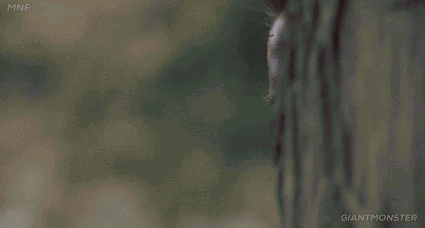I was going to let this go, but the increased pressure from spoiled artists, has forced my hand.
— satman.eth (@satman78704554) December 18, 2020
What are you guys thoughts?@j1mmyeth @pranksyNFT @redlioneye13 @zima_red @NFTland @nft @josiebellini @ModeratsArt @DCCockFoster @Nevableed @rariblecom @MaxStealth5 @Barthazian pic.twitter.com/L5r7AfSixq
It is highly recommended to read the comments below the tweet, as we will be analyzing different viewpoints.
Royalties have been a bit of a gray area and the subject isn’t touched upon unless there are disputes, in which case there is a massive polarization in all fronts.
Basically people end up pushing their opinions over and over rather than having a meaningful discussion, but that’s what we love about Twitter.
Let’s separate it to 3 different "camps".
The artist camp, which supports that royalties must be paid no matter what.
The platform camp, which supports royalties as long as it is on their own platform.
The seller/buyer perspective, which supports all that has been written in the contract and applied(or not) by the platform.
Let’s examine each point of view in an effort to form an educated opinion.
The artists and their fans support that royalties must be paid no matter what, and if they aren’t, then the seller has to either give it voluntarily or after being contacted, as the view is that it’s "their"’ money.
An artist’s journey is always difficult and we all recognize the harsh environment they are being called to tread upon. All the education and training and the devotion to art is what is also being priced in each artwork. That is definitely a valid point.
However, in this day and age where cryptoart can also be considered as an investment vehicle and being used as such by many, an artist should be able to adapt and embrace that new reality.
How are royalties being calculated? If i buy an artwork for 1 eth and sell it for 2 (assuming no fees) then do i "owe" the artist 0.1 or 0.2?
Because the sale was for 1 eth profit, the original investment of 1 eth has already been paid to the artist. If the person that bought the artwork for 2 eth sells it for 4ETH, does he "owe" the artist 0.2 or 0.4? You can see it is a valid question, you will not find another case of tokenomics where this happens. So definitely some more clarity and rules must be applied to keep it fair.
Also, the artist benefits more when a flipper buys their art since he gets paid by the initial sale + all subsequent sales (if royalties reach back of course), so in every case, there is only benefit.
The platforms openly state that they are all about artist royalties and should be implemented. Some ideas that were brought up include writing the royalties in the metadata and being applied universally on all platforms. This could require a lot of work and communication between platforms to be enforced strictly.
Also doesn’t have backward compatibility for previous contracts i would assume. There is an argument here that they also got comfortable in this loophole of a situation because it makes the artist want to sell and advertise their platform if that’s the artist's minting place.
The buyer/flipper camp which supports that the artist's royalties must be paid in a seamless way, however, if a platform doesn’t enforce the royalties it is not his active duty to find the artists and pay royalties.
Also, it is understandable if someone feels "heckled" when contacted by an artist from an old sale asking for money owed.
What is the point of our new automated economy if we have to contact each other to "fix" oversights of contracts/platforms ?

A valid point here as well is that with anon users, this contact and dialogue is not possible. So could some people actively use such means to circumnavigate royalties and artists contacting them to get back royalties? Maybe…
Definitely a possibility. Is that unfair for our "named" buyers? The answer is also YES!
We can clearly see that there are valid points in each camp/school of thought.
A more detailed and sophisticated way to calculate fair royalties is desperately needed, on top of that implementation by the platforms must be precise and trustless. It can’t be placed upon the seller to perform tasks that the platforms should have overseen. What are they charging fees for then?
Fair royalty calculation and trustless distribution are paramount for the development of the space as a whole. Artists need to form a common front and make the platforms implement the necessary changes. Efforts on this part have been low.
That in turn makes the platforms procrastinate, since there is no pressure and the current system works in their favor as mentioned earlier, so why bother? Which like a domino falling to the next moves to the seller being comfortable as well with the current situation, which works in their benefit as well.
Looking from above at all of this, it must be the definition of a clusterfuck, and a perfect problem for code to solve. It is up to us in the end as a community to take on the challenge head-on and actually crush it, or keep in this zombie-like state where we keep coming circles to the same things again and again when we could solve them and elevate the space as a whole.
Then the next "hurdle" will be even easier to solve since we will be already in a consensus like state against these universal "bugs" in our journey in the meta economy.


